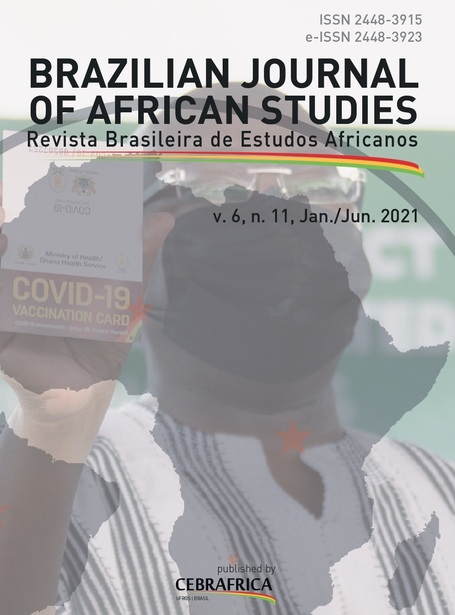ZIMBABWE’S PARADOXICAL ‘NEW DISPENSATION’: POLITICAL HARM, ENDEMIC IMPUNITY AND UNENDING SILENCES, 2017-2020
DOI:
https://doi.org/10.22456/2448-3923.105138Keywords:
Zimbabwe. Violence. New dispensation. Impunity. Silences. Denialism.Abstract
This article attempts to audit the capacity and commitment of Zimbabwe’s post-Mugabe government to reconcile Zimbabweans and heal the country's historical wounds and haunting legacies of politically motivated violence. Following the November 2017 military-assisted transition, President Emmerson Mnangagwa’s newfound rhetoric signaled a rejection of the violence and combative politics of his predecessor, the long-serving President Robert Mugabe. In spite of having been a key enabler to President Mugabe from the Zimbabwean liberation struggle days in the 1970s to the postcolonial era, President Mnangagwa re-presented himself as a transformative politician who wanted to deescalate domestic political tensions by calling for peace and inclusivity in the management of national affairs. He also urged his fellow citizens to disregard the politically motivated pains of the past and collectively move on under the all-embracing triadic national banner of unity, peace and development. In spite of this conciliatory, though amnesia-riven rhetoric, that sought to unify the country’s competing and antagonistic political constituencies, in reality, the Mnangagwa-led government, popularly defined as the New Dispensation, perpetuated the high-handed Mugabe era tactics of violence, abductions, and enforced disappearances against political opponents. It is therefore argued that the changeover implied in the ideal of a New Dispensation amounted to sheer populist gesturing because Zimbabwe has largely remained enmeshed in the impunity and appeasement gridlock of state-instigated spasms of violence against political opponents, interspersed with official silences and denialism.
Downloads
Downloads
Published
How to Cite
Issue
Section
License
The author will hold copyright over the published articles and retain publishing rights.

Brazilian Journal of African Studies is licensed under a Creative Commons Atribuição 4.0 Internacional.


